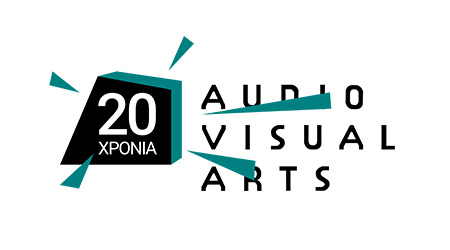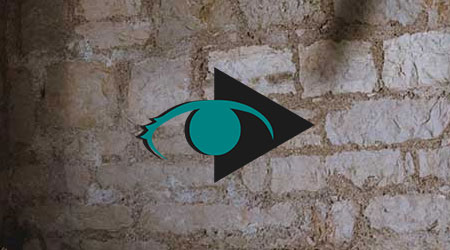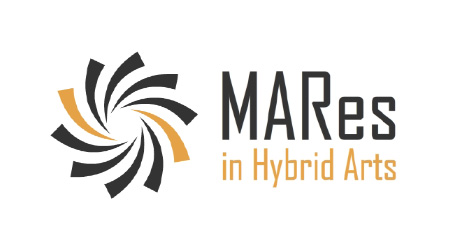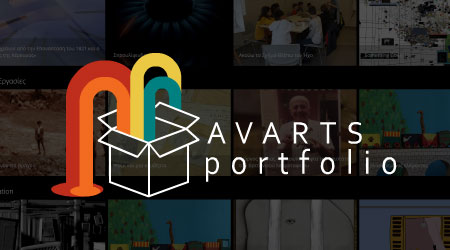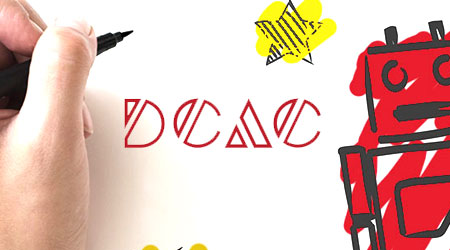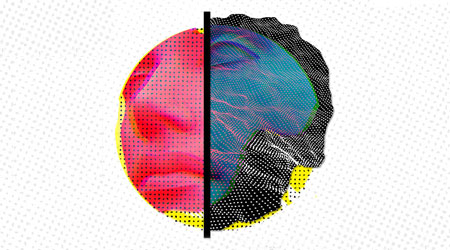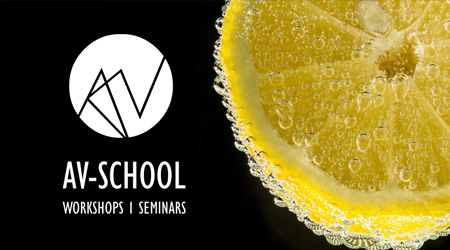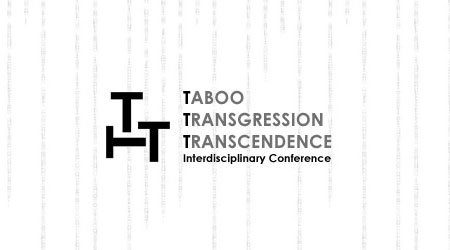Performance Art
Teaching Staff: Marini Charikleia (Hari), Mitsani Christina
Course Code: AVA342
Course Category: Specific Background
Course Type: Elective
Course Level: Undergraduate
Course Language: Greek
Delivery method: Lectures
Semester: 3rd
ECTS: 5
Teaching Units: 3
Teaching Hours: 3
Teaching Structure:
| Activity | Semester Workload |
|---|---|
| Lectures | 26 |
| Lab Lectures | 13 |
| Literature Study and Analysis | 60 |
| Practice and Preparation | 26 |
| Course Total (ECTS: 5) | 125 |
Recquired / Recommended : (THE200), (AVA232)
Prerequisite to / Recommended to: (AVA448), (AVA542)
The module examines the concept of performance through the development of visual arts, performance art, experimental theater, multimedia performance, visual installations. Performance is in dialogue with other forms of art, offering a wide area of research in which the cultural, political and social dimensions of the performance experience emerge. The investigation of performance in relation to identity, agency, socio-political context, aesthetics defines the relationship between performer and audience and reveals the value of performance as a means for reflection, criticism and creative action.
The module focuses on a) becoming familiar with important works and artists, b) introducing the theoretical, aesthetic and theatrical elements of the medium, and c) introducing the creative, experiential process of producing such a work. The modules combines lectures, theoretical/historical research and experiential workshops. Students will work practically in group and individual practical tasks in order to develop research questions and methodology while investigating, operating and recording the creative process. Through theoretical analysis and practice, the understanding of the experiential experience of both the performer and the audience is strengthened, and the value of performance in the contemporary social and artistic landscape is highlighted.
- Understanding of basic definitions and uses of performance, as they have been applied historically, but also its potential evolution, as well as its limits and relationship with other media
- Developing critical skills in order to connect the artistic work and the creative process with the theory that underpins it
- Formulation of research questions and practical methodologies that lead to the production of artistic work
- Developing expressive techniques and understanding of the body as a way of expressing ideas, concepts, feelings and images, as well as its relationship with the surrounding space and the audience
- Exploring different ways in which performance can be combined with and supported by new technologies
- Familiarity with the stages of the creative process, from the conception of an idea to the completion of a performance
1st Week - Introduction to the methods, main ideas and objectives of the module. Interaction and getting to know one another
2nd Week - The body in practice: the importance of the body in performance. Analysis of methods and meanings of physical expression in performance
3rd Week - The importance of the archive and documentation in performance. View videos and analysis of the work of performance artists
4th Week - Space and dramatic practices. Analysis of the space (stage, site-specific performance, gallery, city, socio-political space) in relation to performance
5th Week - Approaching performance through autobiography, writing, improvisation and stage acting. Methodological practices
6th Week - The concept of ritual and its relationship with performance. Analysis of selected projects
7th Week - Performance and technology. Contemporary audiovisual and computing technology, VR, AI. Creative uses in performance and exploration of practical application
8th Week - Selection and formation of ideas for the performances that will be presented as part of the final work. Written description of the proposals and questions to be investigated
9th Week - Presentations of the theoretical research on the proposals and feedback. Analysis of the dynamic relationship with the audience
10th Week - Developing the material and questions of each performance project
11th Week - Presentation of practical tasks, feedback and guidance
12th Week - Summary of basic principles and concepts of the module. Guidance for written assignments
13th Week - Presentation of revised practical work, feedback. Selected performances will be presented at the Audiovisual Arts Festival (Avfest AVARTS)
- Allain, Paul, and Jen Harvie. The Routledge Companion to Theatre and Performance. London: Routledge, 2005.
- Culler, Jonathan. Λογοτεχνική Θεωρία Μια Συνοπτική Εισαγωγή. ΠΕΚ (ΠΑΝΕΠΙΣΤΗΜΙΑΚΕΣ ΕΚΔΟΣΕΙΣ ΚΡΗΤΗΣ), 2013.
- Etchells, Tim. Certain Fragments: Contemporary Performance and Forced Entertainment. London: Routledge, 1999.
- Goldberg, Roselee. Performance Art: From Futurism to Present. London: Thames Hudson, 1979.
- Nick Kaye, Site-specific art: performance, place and documentation. London: Routledge, 2000.
- Rancière, Jacques. ‘The Emancipated Spectator’, Artforum, March 2007: 271-80.
- Schechner, Richard. Η Θεωρία της Επιτέλεσης. Μτφ. Νάνσυ Κουβαράκου. Αθήνα: Τέλεθρον, 2011
- Westcott, James. When Marina Abramovic Dies. Cambridge: MIT Press (MA), 2008.
Online sources
- Artsadmin, http://www.artsadmin.co.uk/home/
- Live Art Development Agency, http://www.thisisliveart.co.uk/
- Media Art Web, http://mediaartnet.org
- UbuWeb, http://www.ubu.com/resources/
- Experiential workshops, exercises, practice, study, research
- Lectures, presentation of audiovisual material and discussion/analysis with students
- Documenting of artistic processes and final work
- Completion and presentation of a performance project• Practical and written assignments
Audiovisual technologies, video, Internet.
- Participation in practical workshops, seminars, tasks and presentations – ongoing evaluation
- Development and presentation of the final performance
- Written work on the artistic project
Back
| << | < | February 2026 |
> | >> | ||
| Mo | Tu | We | Th | Fr | Sa | Su |
1 |
||||||
2 |
3 |
4 |
5 |
6 |
7 |
8 |
9 |
10 |
11 |
12 |
13 |
14 |
15 |
16 |
17 |
18 |
19 |
20 |
21 |
22 |
23 |
24 |
25 |
26 |
27 |
28 |
|
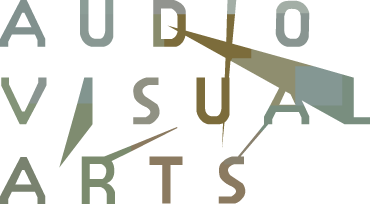


 Performance Art
Performance Art
